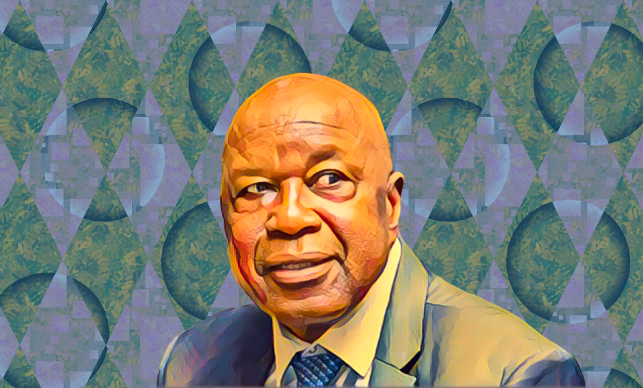At the Southern African Development Community (SADC) Heads of State and Government Summit, opposition leaders from Zimbabwe scrambled for attention as they tried to make their presence felt. The high-profile event, held under a backdrop of increasing crackdowns on political activists and human rights defenders in Zimbabwe, saw President Emmerson Mnangagwa take over the bloc’s chairmanship from Angolan President João Lourenço.
The summit, regarded as one of the most significant political events on the regional calendar, brought together leaders and key players from across southern Africa. These political figures, dressed in their finest attire, arrived with entourages that exuded power and privilege. Yet, amidst the bustling exchanges and strategic mingling, one figure stood out—not for his prominence, but for his solitude. Zanu PF spokesperson Chris Mutsvangwa cut a lonely figure as other politicians jostled for recognition.
The gathering at the summit, which was teeming with high-ranking officials exchanging pleasantries and vying for visibility, highlighted a striking contrast. Mutsvangwa, once a prominent figure within Zimbabwe’s ruling party, found himself isolated, seemingly detached from the flurry of activity. Observers noted his solitary presence, with some remarking on how conspicuously alone he appeared, even as others around him engaged in the usual political posturing and backslapping.
At one point during the summit, Mutsvangwa was spotted wandering outside the Parliament walls, his posture reflecting an air of resignation. It was a moment that captured the attention of journalists and onlookers alike, who speculated on what might have led to his apparent isolation. The sight of Mutsvangwa, who had previously been a central figure in the ruling party, standing alone amid such a significant event was enough to prompt journalists to request interviews, intrigued by his uncharacteristic quietness.
Mutsvangwa’s current situation is the result of a series of events that have seen him increasingly marginalized within the ruling party. Earlier this year, President Mnangagwa dismissed Mutsvangwa from his position as Minister of Veterans of the Liberation Struggle Affairs. The dismissal marked the beginning of what appears to be a gradual sidelining of Mutsvangwa, who has also reportedly been excluded from key projects, such as the Manhize Steel Plant. Sources close to the developments suggest that Mutsvangwa’s vocal nature, often perceived as too outspoken and divisive, contributed to his removal from these influential positions.
Last week, during Zimbabwe’s Defence Forces Day celebrations at Rufaro Stadium, Vice-President Constantino Chiwenga publicly avoided shaking hands with Mutsvangwa. This act only served to fuel further speculation about the growing rift within the ruling party. Reports have also circulated about Mutsvangwa being removed from the Manhize Steel Plant project, a move that many believe was due to his increasingly outspoken behavior.
Political analysts have weighed in on Mutsvangwa’s situation, with some suggesting that his unpredictable and volatile nature has led to his marginalization within the Mnangagwa administration. Ruben Mbofana, a political analyst, pointed out that Mutsvangwa’s tendency to make reckless comments has alienated him from his allies and led to a loss of trust among his peers. Mbofana likened Mutsvangwa’s current predicament to his time under former President Robert Mugabe’s administration, where he was similarly sidelined for his divisive conduct.
Meanwhile, three other familiar figures in Zimbabwe’s political landscape were also present at the summit, albeit with a determined but somewhat subdued air. Douglas Mwonzora, leader of the Movement for Democratic Change-T (MDC-T), Sengezo Tshabangu, interim secretary-general of the Citizens Coalition for Change (CCC) and now a senator, and Lovemore Madhuku, president of the National Constitutional Assembly (NCA), were seen navigating the summit’s events. Despite their diminished political clout, they sought to make their presence felt, possibly hoping for a resurgence on the regional stage.
These opposition leaders, once prominent names in Zimbabwean politics, were given the same hospitality as other summit delegates, enjoying the luxurious amenities reserved for attendees. Their attendance, however, raised eyebrows among observers, given their recent decline in political influence. Some analysts speculated that their presence at the summit was a last-ditch effort to reclaim relevance, not just within Zimbabwe, but also among their regional counterparts.
Rejoice Ngwenya, another political analyst, expressed surprise at the opposition leaders’ attendance at the summit. Ngwenya questioned their motivations, especially in light of the ongoing crackdown on opposition figures and activists in Zimbabwe. Ngwenya pointed out the irony of their participation in an event hosted by a government that has been responsible for widespread repression of opposition voices. He suggested that their apparent alignment with the ruling party and their animosity towards Nelson Chamisa, the leader of the more popular Citizens Coalition for Change (CCC), might explain their presence at the summit.
The SADC summit itself was held under tight security, reflecting the host country’s determination to ensure the safety of the event. From the early hours of the morning, the streets of the host city were filled with uniformed officers, and roadblocks were set up at strategic points leading to the venue. The imposing security presence was a clear indication of the importance the government placed on maintaining order during the summit.
Visitors to the summit had to navigate multiple security checkpoints, each meticulously scrutinizing credentials and passes. Inside the summit venue, the security measures were even more intense, with armed officers guarding every entry point. Access to different areas of the conference was tightly controlled, reflecting the heightened security concerns surrounding the event.


